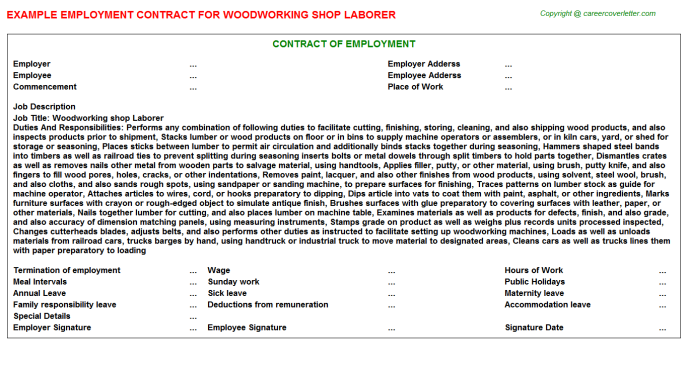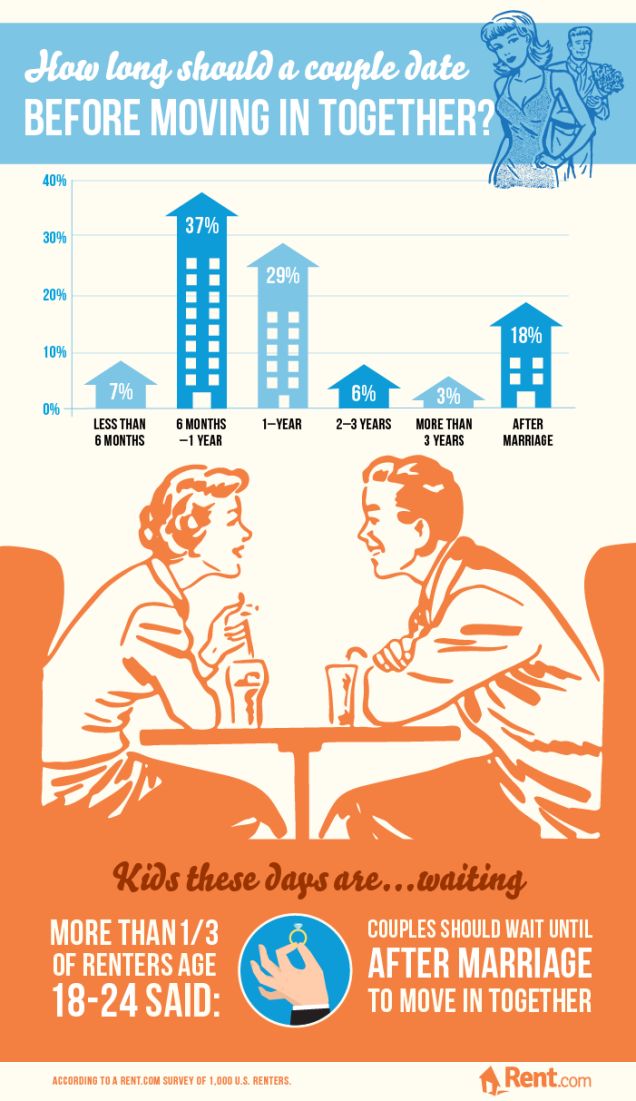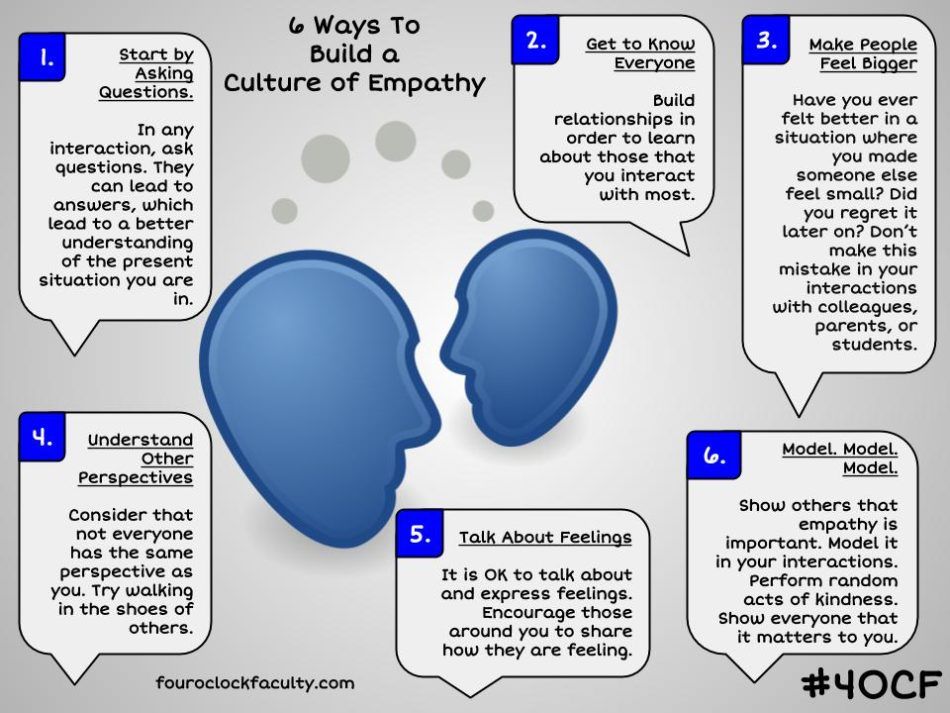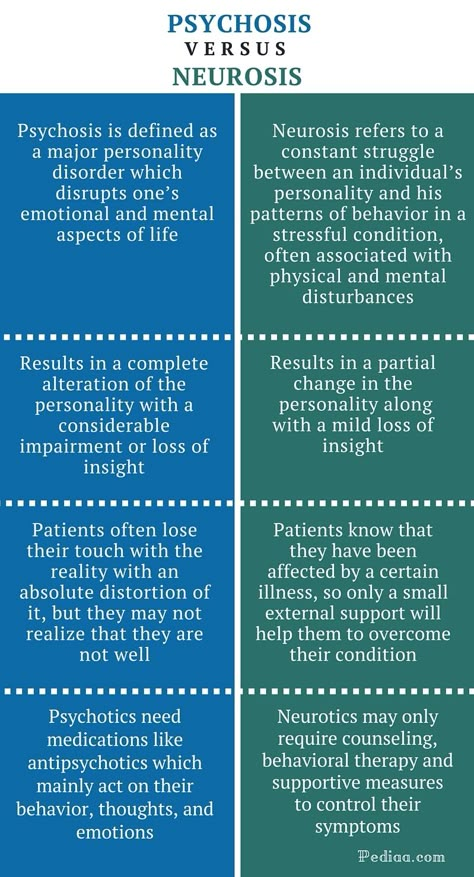How long until you move in together
How Soon Is Too Soon to Move In Together? 15 Signs You're Ready
You’re in love, ready for the next step, and thinking about when to move in together.
But doubts are creeping in, and you’re probably wondering, “Is it too soon to move in together?”
You don’t want to rush into this level of commitment if the timing isn’t right or you haven’t done your due diligence.
So when is a good time to move in together?
To help you make the best decision, we’re breaking down the ins and outs of cohabitation.
How long should you wait?
What are the red flags?
How will you know when it’s time?
Let’s dive in!
[Black Friday Sale: In this online course, learn healthy communication skills and build the intimacy you’ll cherish for years to come.)
What’s in this post:
[show]
How Long Should You Date Before Moving in Together?
If you’ve landed here, you’re probably grappling with a couple of questions: “When should I move in with my boyfriend?” or “How soon is too soon to move in together?”
Conventional wisdom advises couples to wait at least a year before cohabitating, but experts insist two years is the magic number.
Ideals, however, don’t always align with the actual stats.
According to Dr. Brenda Wade, “same-gender couples, on average, move in together within 6 months. For all other couples, it seems to be on average about 2 years.”
Interestingly, Americans like to move in together before getting married. According to one study, 70% of marriages where the woman was under 36 when she got hitched started with at least three years of pre-wedding cohabitation.
How Soon Is Too Soon to Move In Together? 15 Red Flags The Timing Is Not Right
The experts give general advice, but every couple is different.
Some people move in together within a month and stay together for the rest of their lives.
Others wait a decade to move in together and separate within six months of a cohabitation experiment.
So what about you? Where does your relationship fall on the scale?
Since every relationship moves at its own pace, using benchmarks is a logical way to determine when to move in together.
To that end, let’s start with the cohabitation red flags.
1. You Avoid Discussing Money
If you’re not at a point where you’re comfortable discussing and mingling finances, the relationship is likely not yet strong enough to survive cohabitation. You’ll be sharing bills and need to trust each other monetarily.
2. You’re Navigating Major Life Changes
Life is like a white-water rafting trip. Sometimes, it’s calm, smooth floating; other times, you’re battling raging rapids.
And when you’re navigating a rough patch, it’s usually best not to make significant changes. Wait until you once again reach serene waters to change your living arrangements.
3. You’re in the Early Stages of Recovery
Congrats! You’re clean and sober and feeling great. But you shouldn’t be making huge commitments during your first two years of sobriety — regardless of what plan you’re following. Give yourself time to get to know the new you.
4. You and Your Partner Constantly Argue
If you constantly argue while living apart, moving in together will be a zillion times worse. Sometimes we end up dating people who are ultimately wrong for us, and frequent fighting is not an encouraging sign.
Sometimes we end up dating people who are ultimately wrong for us, and frequent fighting is not an encouraging sign.
5. You Have Yet To Play House
It’s a good idea to “play house” before officially moving in together. Spend a month at one of your places. How does it go?
Are you itching to have your own space after three days? A trial run will give you a clear idea of the relationship’s health.
6. You Can’t Support Yourself
Times are tough, and cutting expenses in half may sound like a good idea. But think thrice before making this leap for this reason.
If it doesn’t work out, you could be stuck between a rock and a hard place, owing more money than you would have.
7. You’re Being Pressured
It’s your life. Don’t let peer pressure — or any type of pressure — back you into a cohabitation corner. If you enjoy having your own place, keep it! Take Virginia Wolfe’s advice and maintain “a room of one’s own.”
8. You’re Not In Love
Are you in love or settling because everyone around you is pairing off, moving in, and getting married? It can be frustrating.
It may feel like you’re being left behind. But remember that each life unravels differently. It’s better to be true to yourself than keep up with the proverbial Joneses.
9. You Hate Each Other’s Friends
Although it’s unromantic to think about, successful relationships take more than just love. There must be a sense of camaraderie — not with just each other, but with each other’s friends.
That doesn’t mean you have to love every single person he hangs with, but you shouldn’t hate when he has the gang over either. And the same goes for your crew.
10. Your Life Goals Are Completely Different
You want to live off-grid and grow your own food. He wants to be a Wall Street tycoon who aspires to one-day have a butler. How you ended up together, nobody knows.
For a while, it’s fun. It’s your “opposites attract” phase.
But in the long run, relationships like this rarely stand the test of time. If you’re too different, living together will likely sour quickly.
11. Your Eating Habits Are Diametrically Opposed
You’re a committed kosher vegan; the only two food groups he consumes are milk and dairy.
This is another scenario with terrible odds. It’s challenging to live with someone whose lifestyle is diametrically opposed to your own. And when cohabitating, food becomes a huge deal.
12. You Still Pretend To Be Perfect
Learning to acknowledge your faults is a big part of growing up. If you’re still at a point where you blame others for your misdeeds — or project your insecurities onto friends and family — you’re probably not ready to cohabitate with a lover.
13. Lack of Trust Is Motivating Your Decision
It’s a cliche, but it’s true: changing a zebra’s stripes is impossible. If you’re dating a dog, you can’t force him to be faithful.
So if the only reason you’re moving in with him is to keep him from cheating, prepare to have your heart crushed.
14. You Don’t Know How To Compromise
Be honest: Are you a princess? Do you freak out if things don’t go your way? Is your partner willing to accommodate your every whim? If not, maybe you’re not yet ready to move in with someone.
15. Your Gut Says “No”
Sometimes, your gut knows you better than your brain. If it’s telling you to slow down and hold off, listen.
There’s a reason you’re not enthusiastic. Figure that out before advancing the relationship.
When Should A Couple Move In Together? 15 Signs You’re Both Ready
We’ve discussed the red flags to consider before deciding whether to move in with your partner. Now, let’s take a glass-half-full approach and explore 15 signs that you’re both ready to cohabitate.
1. You Basically Live Together Already
Do you pretty much live together already? If it’s been many moons since you’ve stayed apart, and you’re getting along fine, it’s probably safe to consolidate.
2. You’re Both on the Same Page About the Relationship
Have you talked about where you both see the relationship headed? Are you on the same page? If you’re not mature or committed enough to talk about a future with each other, moving in together may not be the wisest step.
But if you’re walking in the same direction toward something serious, then cohabitating may make the most sense.
More Related Articles
25 Controversial Relationship Questions To Ask Your Partner
40 Indisputable Turn-Ons For Women And Men
How To Set Intentions And 35 Transformative Intentions For The Day
3. You’re Financially Ready
Money matters when you live with your lover. Are you ready to pay your way? Do you have debt that could affect your arrangement? Have you told your partner about it?
If you can’t support yourself, moving in with another person may not be a good idea. First, get on your own two feet. The process is a lot more enjoyable if you are.
At the very least, make sure you’re open and honest about your fiscal situation with your partner. If they plan to support you, get it in writing.
4. You’re Financially Communicative
You must be open about your base financial situation, but you also should be willing to communicate about money continually and effectively. Hidden purchases and expenses always eventually erupt.
Hidden purchases and expenses always eventually erupt.
But if you’re open and honest with your partner, and feel comfortable with their financial health, pat yourself on the back. You’re adult enough to take it to the next level.
5. You Know How To Communicate With Each Other
Can you easily bring up difficult topics with your significant other? Do you know how to disagree without immediately blowing up?
Can you tell when the other person needs space? You’re probably ready to cohabitate if you can confidently answer all these questions with a “yes.”
6. Saving Money Isn’t Your Only Motivation
It’s not just about saving money. Instead, you two are ready to elevate the partnership to the next level.
7. You’re Supportive of Each Other’s Goals
Is the relationship lopsided? Does one of you put more effort into the relationship? If you have each other’s back, then you’ve checked off another cohabitation requirement.
8. You’re Comfortable With How To Split the Rent
You’ve talked about how you’ll split the rent, and you’re both 100% comfortable with the agreement. It’s also wise to discuss a backup plan if one of you cannot fulfill your end one month.
It’s also wise to discuss a backup plan if one of you cannot fulfill your end one month.
9. You Can Deal With the Other Person’s Mess
Sure, it may annoy you sometimes, but your partner’s messes don’t send you over the edge — and vice versa. What about chores? Have you decided how to split them up? If you’ve covered all these bases, you’re probably ready to share a roof.
10. You’ve Successfully Taken a Long Trip Together
Many relationship therapists suggest taking a long trip together. It’s a great way to gauge how you’ll react when forced to be with the other person all the time.
If you’ve done it and enjoyed the closeness, that’s one more clue that you may be ready to live together.
11. You’re Not Hiding Major Secrets
If you’re still keeping major secrets from your significant other, it’s wise to reevaluate the relationship. Why don’t you feel comfortable telling them certain things?
However, if you can share your deepest, darkest secrets with your partner, it’s a sign that you’re ready to cohabitate.
12. You’ve Survived a Huge Fight
Couples that always fight usually don’t survive — but neither do couples that bottle up their feelings.
If you’re thinking about moving in together, you should have at least one major fight under your belt. Living together can be tricky, and you need to have experience working your way through conflicts.
13. You Feel the Same Way About Pets
Pets can make or break a relationship — so talk about them before moving in together. Are you on the same page in terms of four-paw family members?
Do you agree on the cats, dogs, birds, hamsters, or reptiles question if you’re both pro-pet?
If you both have the same attitude toward non-human “children,” that bodes well for taking the next step toward cohabitation.
14. You’re Secure Enough To Talk “Worst Case Scenarios”
You’re not ready to cohabitate if you’re uncomfortable talking through “what ifs” — including “what if we break up.” Always have a contingency plan. Life is unpredictable.
Life is unpredictable.
15. Your Gut Says “Yes”
Consult your gut. As we mentioned above, it’s a capable radar. Trust it if it’s signaling that all systems are ready for liftoff! But even so, put your head and heart above your gut on this decision.
Sometimes you can mistake a romantic notion for intuition.
FAQs About Moving In Together
Is three months too soon to move in together?
Most relationship experts advise couples to wait at least a year before moving in together.
But that doesn’t mean people who cohabitate after only three months won’t last. However, folks who wait a bit longer have a better track record.
Is seven months too soon to move in together?
Seven months is enough time for some couples to know if they want to cohabitate. However, most marriage counselors recommend waiting at least one year. That said, if you can check off certain relationship milestones, you may be ready.
How do you know if it’s too soon to move in together?
If you’re constantly fighting, have yet to discuss finances, and one of you still has several secrets tucked away, you’re probably not ready to share a home with your romantic partner.
Cohabitation is a big step, and it can be fulfilling and fun. However, think carefully before making the leap prematurely. Moving out is not as fun as moving in.
When Should We Move in Together?
Deciding to move in together is a big step, so with a checklist at hand, you can assess just how ready you are.
Every couple has its own milestones. One of the biggest is the decision to order that moving truck and co-create a shared living space.
Should you move in together? There’s a lot to factor in and no one-size-fits-all timeline. But there are several signs that might indicate that you’re ready.
This question is very individual to each couple, says Kim Egel, a marriage and family therapist in Cardiff, California.
“However, if you think of a new relationship as a life transition, then you can give the relationship at least 1 year to wait to make the leap to cohabitate,” she says.
How long do most couples date before living together?
“Same gender couples, on average, move in together within 6 months. For all other couples, it seems to be on average about 2 years,” says Dr. Brenda Wade, a psychologist in San Francisco, California.
For all other couples, it seems to be on average about 2 years,” says Dr. Brenda Wade, a psychologist in San Francisco, California.
Research from 2017 found that from 2011–2015, 70% of marriages among women under 36 years old started with at least 3 years of cohabitation before marriage.
Signs you’re both ready to move in together
It’s not a matter of when you should live together but why, says Wade.
“Sit down and ask yourselves why you want to live together,” she says. “The secret ingredient is being clear, which means don’t try to figure out things after you move in together. Figure it out before.”
You may be ready to move in together if you’re on the same wavelength about:
- cleaning
- finances
- schedules
- alone time
- communication
- your future as a couple
- how to set up your living spaces
It can also help to be open about what it’s like to live with a certain mental health condition, so you both know how best to support each other.
Here are some guides to living with and dating people who have:
- ADHD
- anxiety
- bipolar disorder
- narcissistic traits
Love is a start, but it’s not everything. There’s a lot more that goes into a couple moving in together.
1. You’re used to each other
If you’re already spending most of your nights together, and have successfully weathered disagreements, meeting each other’s families, and relationship hardships, you might consider these solid steps toward cohabitating.
2. You’ve talked about finances
Will rent be split down the middle, or proportional to how much you earn? What expenses will be shared or separate? It’s a good idea to get on the same page about this before you sign on the dotted line.
3. You have a game plan for chores
The dishwasher isn’t going to unload itself, sadly. While you may have some idea of each other’s habits, consider discussing how you’ll divvy up cleaning and how much mess is OK with each of you.
4. You’re setting boundaries
Will phones be allowed in the bedroom? Is there a pet in your future?
You might take time to co-create a vision for your sacred space that makes sense for both of you, while setting healthy boundaries from the get-go.
5. You’ve learned to argue in a healthy way
If you can successfully overcome disagreements, communicate effectively, and listen to your partner, you’ll have a better chance of success in a shared space.
6. You can be yourself
“When you start dating someone, you may feel obligated to keep all of your typical, but occasionally humiliating behaviors… hidden from them,” says Dr. Elizabeth Lombardo, a psychologist in Chicago, Illinois.
“It may be time to live together if you’ve grown so comfortable that you’re not holding in gas or pretending to be a more delicate eater than you are,” Lombardo adds.
7. You feel excited
It’s natural to have mixed emotions about a big milestone. But, ideally, you’ll feel more excited than nervous about this upcoming transition.
If you feel dread, anxiety, or pressure to move, pump the brakes until you can sort out your feelings.
It’s helpful to understand that anxiety and depression can affect decision-making.
Egel says that if you’re feeling unsure, you should have more intimate conversations around the future.
“Factor in important topics such as want for a family, finances, and emotional readiness,” she says. “These are topics that can help deepen a connection, or show where there is work and a conversation to be had.”
If you need support, a relationship coach or a couple’s therapist can help you navigate challenges and improve communication.
There’s no perfect how-to list on dating, moving in together, and marriage, so there’s no “right time” for everyone.
When to move in together is a decision you’ll have to make as a couple.
Before you make the big decision, it can help to take an honest inventory of your relationship, finances, and vision for the future. If you need more support or are feeling pressured, consider reaching out to a professional who can help.
If you need more support or are feeling pressured, consider reaching out to a professional who can help.
How to look for a job in another city
Each city and each profession has its own characteristics. For example, in Moscow and St. Petersburg, the competition is much higher than in the regions, so it is easier to look for work on the spot: while a non-resident will solve relocation issues, the employer will already find a local specialist. In some industries, it is more difficult to find a job remotely. For example, among lawyers and accountants there is a very high competition for a position. In this case, the employer considers only local applicants.
Before moving, it is important to consider these features. The Index hh service will help: it shows the situation by profession in different cities - the number of people per vacancy, the increase in offers by industry, the average salary offered.
After studying the job market, update your resume: add recent work experience, competitive salary, training information, check keywords. To find out what to write in a cover letter, look at the vacancies in your specialty, note the skills in demand and knowledge of the latest versions of programs. If there is no resume or it has not been updated for a long time, contact the "Ready resume". Experts will conduct interviews and compile your work history into a neat document.
To find out what to write in a cover letter, look at the vacancies in your specialty, note the skills in demand and knowledge of the latest versions of programs. If there is no resume or it has not been updated for a long time, contact the "Ready resume". Experts will conduct interviews and compile your work history into a neat document.
Keep in touch with professionals from other cities, remind about yourself, be interested in vacancies. Often a new employee comes to the company thanks to the recommendation of one of the colleagues. For some professions, communication is the main tool of work. For example, a journalist accumulates a database of contacts for a long time in order to get any comment later. It is useful to get phones in advance, which can be useful in a new place.
“From the experience of communicating with candidates, I know that many were recommended by acquaintances or friends who already lived and worked in this city,” says Evgenia Mikhailova, an expert at the Ready Resume service. “For employers, a positive feedback from an employee who has proven himself is a powerful argument.”
“For employers, a positive feedback from an employee who has proven himself is a powerful argument.” When remote searching doesn't work, it's worth building a financial cushion and trying to move without a specific job option. The ideal option is to set aside money with the expectation that it will be enough to live on for three to four months.
In addition to the HeadHunter website, different cities have their own popular job posting channels. The locals are well versed in them.
Evgenia Mikhailova: “The applicant should try to identify the most popular sources of personnel search for the categories of interest to him. Somewhere these are print media, somewhere they are all-Russian search sites, and somewhere there are local resources. For example, in Tula, many find work through the newspaper, in Arkhangelsk, I was looking for working staff on a local Internet resource. Somewhere in the cities there are strong VKontakte communities. You need to search in every possible way. "
" If you are a narrow profile specialist, select companies or enterprises where you could get a job. Contacts of the personnel department, as a rule, are on the sites. Send them a resume and note that you are ready to move: employers often help a valuable employee with relocation.
Use the automatic subscription to the vacancies of the companies you need. Set up an automatic search for suitable vacancies - specify the city you want to move to, salary, desired schedule.
Do not respond to vacancies with the word "urgent". If a company is in dire need of a person in your specialty, they are unlikely to be willing to wait until you move.
Some vacancies are not suitable for a visitor. For example, a construction project manager in Moscow needs to have good experience in dealing with local government agencies and monopoly companies. Without this, it will be difficult to work: an applicant from another city simply does not have the necessary contacts.
If the job involves a good knowledge of the business environment, it is better to start from a lower position. Having gained contacts and understood the processes, you can apply for the desired level.
Having gained contacts and understood the processes, you can apply for the desired level.
Employers have many fears associated with a visiting employee. He may not get along with the team or he will not like the city, there will be unexpected difficulties at work. The boss expects a long-term employment relationship. He is afraid that you will suddenly pack up and go home if something goes wrong.
The employee really has the right to change his mind at any time. To relieve anxiety, promise not to do it all of a sudden. Explain that all domestic problems have been resolved and you are ready to go.
Evgenia Mikhailova: “Employers need specifics: when an employee is ready to start work and whether he can promptly arrive for an in-person interview, if necessary. In most cases, relocation issues are a headache for the applicant, which the employer should not be affected in any way. Managers believe that visiting specialists are more motivated - they need to gain a foothold, quickly show results. This stereotype works, especially if the applicant is moving from a larger and more developed city. Newcomers may be given preference when a mobile worker is needed who is ready for business trips, for example, if you need to set up work in the entire network of offices or install new equipment.
This stereotype works, especially if the applicant is moving from a larger and more developed city. Newcomers may be given preference when a mobile worker is needed who is ready for business trips, for example, if you need to set up work in the entire network of offices or install new equipment.
The first interview can take place on Skype or by phone. Solve all technical problems in advance. An unreliable connection or poor connection can make it difficult to communicate calmly with the manager.
In the summary in the column "city of residence" put the one where you are going to look for a job. Think in advance how you will get to the first meeting if you receive an invitation: after how many days you will arrive for an in-person interview, when you can go to work. Think over communication, Evgenia Mikhailova advises: “If a person lives, for example, in Khabarovsk, and is looking for work in St. Petersburg, indicate the city of residence of St. Petersburg, and the time of the call is from 8:00 to 17:00, so that recruiters do not call at night. ”
”
Some employers check applicants together with the security service. It happens that the process is delayed - in serious structures with high secrecy, checks can take two months or longer. Treat this with understanding: provide the necessary documents on time, honestly answer the questions of specialists, if necessary.
Consider how long the move will take you. Be prepared to discuss this deadline with your manager during your first interview. Check with those who moved - choose a reliable transport service, look at housing offers in a new city.
Every two weeks, HeadHunter publishes a text about those who have moved to live and work in another city. We spoke with job seekers and managers to find out what kind of specialists they are looking for in different regions.
For example, in Kaliningrad there is no university that would train engineers for a local design bureau with a space profile. Therefore, the staff of the design bureau is visitors from Samara, Tomsk and other cities where you can learn in the desired specialty. There are many leaders in Kazan, but there are not enough bakers and seamstresses. Applicants and managers from Sochi talk about the need for reliable personnel for the hotel and restaurant business. Read the stories of other applicants, see the advice of managers. If you are determined to change your location, learn more about the new region.
There are many leaders in Kazan, but there are not enough bakers and seamstresses. Applicants and managers from Sochi talk about the need for reliable personnel for the hotel and restaurant business. Read the stories of other applicants, see the advice of managers. If you are determined to change your location, learn more about the new region.
The regions with an acute shortage of personnel are the Far East, the territories of the Far North. The southern regions of Russia are characterized by the need for personnel for agriculture and food production. Study the personnel situation, determine the profile of the region before you start moving.
people cannot be adults until they move from their parents
The Belarusian reality is such that not all grown-up children can afford to move from their parents to their own apartment. Yes, and few people agree to rent a “odnushka” in Minsk for $500. The rest choose a comfortable life on their own sofa, along with their mother's borscht. Is the problem in the socio-economic disorder of our society or in the generation of infantile young people who stubbornly refuse to grow up? Family psychologist, psychotherapist, Gestalt therapist Vladlen Pisarev told Onliner.by about why children should move away from their parents and what will happen if this does not happen.
Is the problem in the socio-economic disorder of our society or in the generation of infantile young people who stubbornly refuse to grow up? Family psychologist, psychotherapist, Gestalt therapist Vladlen Pisarev told Onliner.by about why children should move away from their parents and what will happen if this does not happen.
— Is it worth it for adult children to live with their parents in terms of a healthy family model?
- There are several concepts for this. I am close to such a position that a person needs to separate from his parents and become independent. I believe it's good. I think this is correct. But some people do not believe in this, this is their position, and I do not consider it necessary to convince them. However, there is such a thing as family life cycles. And if the child remains to live with his parents, then these life cycles are violated. The first such cycle is the so-called solitary phase. We are talking about the period when a young person, whether male or female, leaves the parental family and begins to live independently. Begins to build his own life. He begins to earn money, pay for housing, buy clothes. A person learns how much life is worth. If a person lives with his parents, then such things are simply unknown to him. It often happens like this: a young man lives with his father and mother and gives part of the money, say, for food. And the fact that for the house you need to buy washing powder, a light bulb or paint, he does not know at all. And then, in his concept, much less material resources are needed for life than in reality. Representations are formed distorted, and then a person will not be able to live normally, conflicts will begin. When he begins to live with his wife without parents, it turns out that the family does not have enough money. And for him it was a great surprise: how could it be, I used to live with my mother, everything was in order, and now I have such an ownerless wife that it’s impossible to live on my $ 300?!
Begins to build his own life. He begins to earn money, pay for housing, buy clothes. A person learns how much life is worth. If a person lives with his parents, then such things are simply unknown to him. It often happens like this: a young man lives with his father and mother and gives part of the money, say, for food. And the fact that for the house you need to buy washing powder, a light bulb or paint, he does not know at all. And then, in his concept, much less material resources are needed for life than in reality. Representations are formed distorted, and then a person will not be able to live normally, conflicts will begin. When he begins to live with his wife without parents, it turns out that the family does not have enough money. And for him it was a great surprise: how could it be, I used to live with my mother, everything was in order, and now I have such an ownerless wife that it’s impossible to live on my $ 300?!
The second life cycle is the couple phase. Two people begin to live together. If there was no first phase, the solo phase, then all the difficulties that we talked about begin on the second. People do not know how to live on their own, do not know how much life costs, do not know how to stand in line, build housing.
If there was no first phase, the solo phase, then all the difficulties that we talked about begin on the second. People do not know how to live on their own, do not know how much life costs, do not know how to stand in line, build housing.
The next cycle, when the family begins to expand, is associated with the appearance of a child. It requires a restructuring of relations. And if there was no first phase, there was a second one, but they lived with their parents, it turns out that the relationship is complex, unfinished. For example, who decides what is right for a child? Grandmother and grandfather? Dad or mom? Whose word is the most important? Who owes whom? Are grandmothers supposed to look after children or not? This creates a lot of difficult questions. The larger the family, the more difficult it is to clarify the relationship. From this position, children, of course, should not live with their parents. And, moreover, it is better to separate from them and build your own life.
— But a couple of centuries ago, for example, Belarusian girls sat in their parents' hut until they got married…
— If we talk about traditions, it historically happened that we Slavs had a tribal system for a very long time. Therefore, our roots are the construction of very large families with unclear relationships. Is it good or bad? Many Belarusian families are satisfied with such a model, when a strong grandfather is at the head, a kind of prince who keeps everyone in check, makes sure that everything is good and right. And then everyone behaves as expected - "so that you are not ashamed before God and people." As my grandfather said, so be it. But there is another truth in which the family is only husband, wife and children. They build their own life, not connected with their parents on either side. Husband and wife create something of their own, individual.
In general, this difference in strategies - to live in a large ancestral family or an individual family - is largely due to the level of development of society. The better the socio-economic conditions in the country, the greater the opportunities for individual families, and vice versa.
The better the socio-economic conditions in the country, the greater the opportunities for individual families, and vice versa.
— At what age is it better to leave your parents?
- There is no single answer for everyone. I have seen people who have not separated from their parents even at the age of 40. It would be right to move when the need arose. If we rely on real social things, then why not connect the beginning of an independent life with coming of age? Only at the age of 18 it is difficult to put it into practice, because at this age only unique people have a well-paid job that would make it possible to earn good money. Although I know them. A reasonable approach is needed here: at what age can a person in our world really provide for himself? You need to get away from this.
— Why do adult children continue to live with their parents, even though they are 18 years old?
— It's just convenient to live with your parents. They cook, buy a lot for children, therefore, you can spend more money on yourself. Therefore, for a large number of young people, men and women, it is simply convenient. And they get the idea to leave their parents when their father and mother begin to interfere with the realization of their needs for freedom, for choosing a partner, for pets, for emigrating to Germany, for earning a lot of money ... Needs can be anything.
They cook, buy a lot for children, therefore, you can spend more money on yourself. Therefore, for a large number of young people, men and women, it is simply convenient. And they get the idea to leave their parents when their father and mother begin to interfere with the realization of their needs for freedom, for choosing a partner, for pets, for emigrating to Germany, for earning a lot of money ... Needs can be anything.
In turn, men who continue to live with their parents at the age of 40 also do this in order to satisfy some of their needs. If his mother prepares food for him, washes, irons, buys underpants, then why leave? Then you would have to either cook yourself (which is very tiring), or find someone who cooks no worse, and even with a good character. And the character of the women around is bad, there is still no one better than the mother - this is how the men who live in this situation argue. If the mother performs all the functions (she is both a housewife and a person with whom you can talk), then a wife is not needed. Why is she in this case? In this system, one more woman is simply superfluous: all roles are occupied. They need a mistress for sex - that's all. In order for a woman to appear, it is important to break off relations with her mother.
Why is she in this case? In this system, one more woman is simply superfluous: all roles are occupied. They need a mistress for sex - that's all. In order for a woman to appear, it is important to break off relations with her mother.
— Can a man who lives with his mother at the age of 40 be successful?
— Why not? Depending on what you mean by success. He can be quite a successful scientist. Mom provides the rear. He does not need to buy food, cook or iron clothes at all, he is only engaged in science. He can do it in such conditions for 20 hours a day! And it is clear that by investing so much, he can get a good result. Be an interesting researcher, generate ideas. He can also actively engage in business, because, again, he invests all his resources in development.
- You get some kind of model of a happy person ...
- Well, yes.
- And I have a feeling that something is wrong.
- It's because you are a woman and you have no place in this system of a 40-year-old son and his mother. And that's how it is in their concept. From the point of view of such a mother, you are definitely superfluous there - a competitor. From the point of view of a man, everything is also in order. For some men, even procreation is not a leading need. Or you can somehow manage to get married quickly, have children and immediately divorce. And gladly return to my mother, continue all the same.
And that's how it is in their concept. From the point of view of such a mother, you are definitely superfluous there - a competitor. From the point of view of a man, everything is also in order. For some men, even procreation is not a leading need. Or you can somehow manage to get married quickly, have children and immediately divorce. And gladly return to my mother, continue all the same.
— Is it possible to say that today's younger generation has become more infantile, less independent?
- First you need to figure out what we mean by the word "infantile." Is it the inability to earn a living when a person lives with his parents, and they buy him underwear? And if a person buys underpants for himself, then he can be called an adult, right? It is often said that if a woman does not know how to cook borscht, then she is infantile. And what, she must be able to do this? If a person does not want to earn a lot of money for a living and knows how to live on a minuscule amount, are we going to accuse him of infantilism? This is, rather, not an infantile, but a passive individual who is located at the very bottom of the pyramid of power, which depends on genes.














